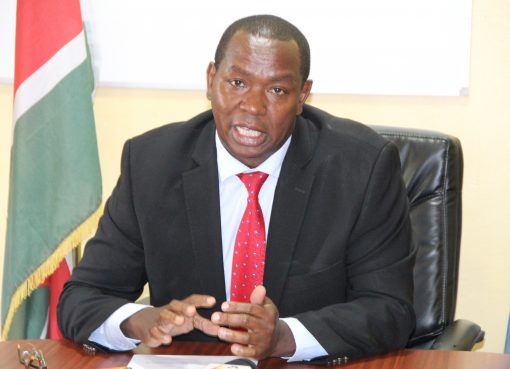Donkey stakeholders have petitioned the government to ban donkey abattoirs countywide to protect the endangered beast of burden that stares at extinction by 2023.
According to a study done by Kenya Agricultural and Livestock Research Organization (KALRO), the four licensed abattoirs in the country had the capacity of slaughtering 1, 200 donkeys daily against an estimated population of 1.8 million donkey by Kenya National Bureau of Statistics’ 2009 Housing and Population census.
The findings were contained in a report titled, “Status of Donkey Slaughter in Kenya and its Implications on Community Livelihoods,” which was released on June 5.
Speaking on Thursday at Kenyatta University’s Kitui Campus during the integration of donkeys at the University’s teaching farm, Brooke East Africa Chief Executive Officer Eng. Fred Ochieng lamented that total donkey slaughtered in the past three years represented 15 per cent of the current population.
Eng. Ochieng said that in 2016, the number of donkeys legally slaughtered was 20,768, translating to one per cent of the population, while in 2017, up to 12,578 donkeys were slaughtered, representing 6.2 per cent of the population and 2018, 159,631 donkeys were slaughtered, translating to 8.1 per cent of the population.
“Despite an assumption that the donkey population rate would remain constant over the years, there was disruption of annual population growth rate through indiscriminate slaughter of the donkeys,” said the Brooke East Africa CEO.
Ochieng disclosed that the annual mean rate of donkeys slaughtered was 5.1 per cent, five times higher than the annual population growth of donkeys which stands at 1.04 per cent.
“Brooke East Africa is now calling for a ban on the trade of donkey skins in Kenya and a crackdown on cross border smuggling of the animals in the country for their skins,” he added.
Commenting on the benefits of donkeys, Ochieng said that Kitui County with a population of 136, 000 donkeys which generate a minimum of Sh 500 per day has an annual turnover of Sh 22 billion against their sale value of Sh 1. 3 billion.
“Donkey are more valuable when alive than dead. They form and support a vital lifeline support for several households and power rural economies,” he noted.
Similarly, Kenyatta University Vice-Chancellor Prof Paul Wainaina said that dryland agriculture is one of the frontiers to spur agricultural potential in arid and semi-arid lands (ASALs).
“We have to motivate young people to take up agricultural activities to relieve aging farmers in the country. The programmes are technologically oriented to support smart agriculture, improve breeds that are disease resilient, “said Prof Wainaina.
Kitui County Deputy Governor Dr. Wathe Nzau said that the county will benefit immensely from the university’s model farm through top-notch research activities on the best breeds for donkeys to improve farmer’s herds.
“Through value addition, research on donkey milk, development and baling of pasture from indigenous grass, farmers will use this farm as a demonstration centre to scale donkey production in the county,” said Dr. Wathe.
“ The establishment of such abattoirs will hurt thriving rural economies, says Samuel Mulonzya,” Chair Mwingi Donkey Owners adding the demand for donkey skins in Chinese market was fueling theft and cross border smuggling, presenting a threat to local farmers.
The animal rights activist decried that illegal donkey skinning and slaughter is on the rise countrywide following a lucrative Chinese black market for donkey skins.
The government through the Meat Control (Amendment) Act 2012 legalized donkey along with horse meat as a food animal.
Mulonzya noted that illegal skinning of donkeys in Kitui County deprived the community of their livelihoods, as most women relied on donkeys for transportation of water to their homesteads both for domestic and commercial uses.
By Yobesh Onwong’a
Sunday, December 22, 2024



